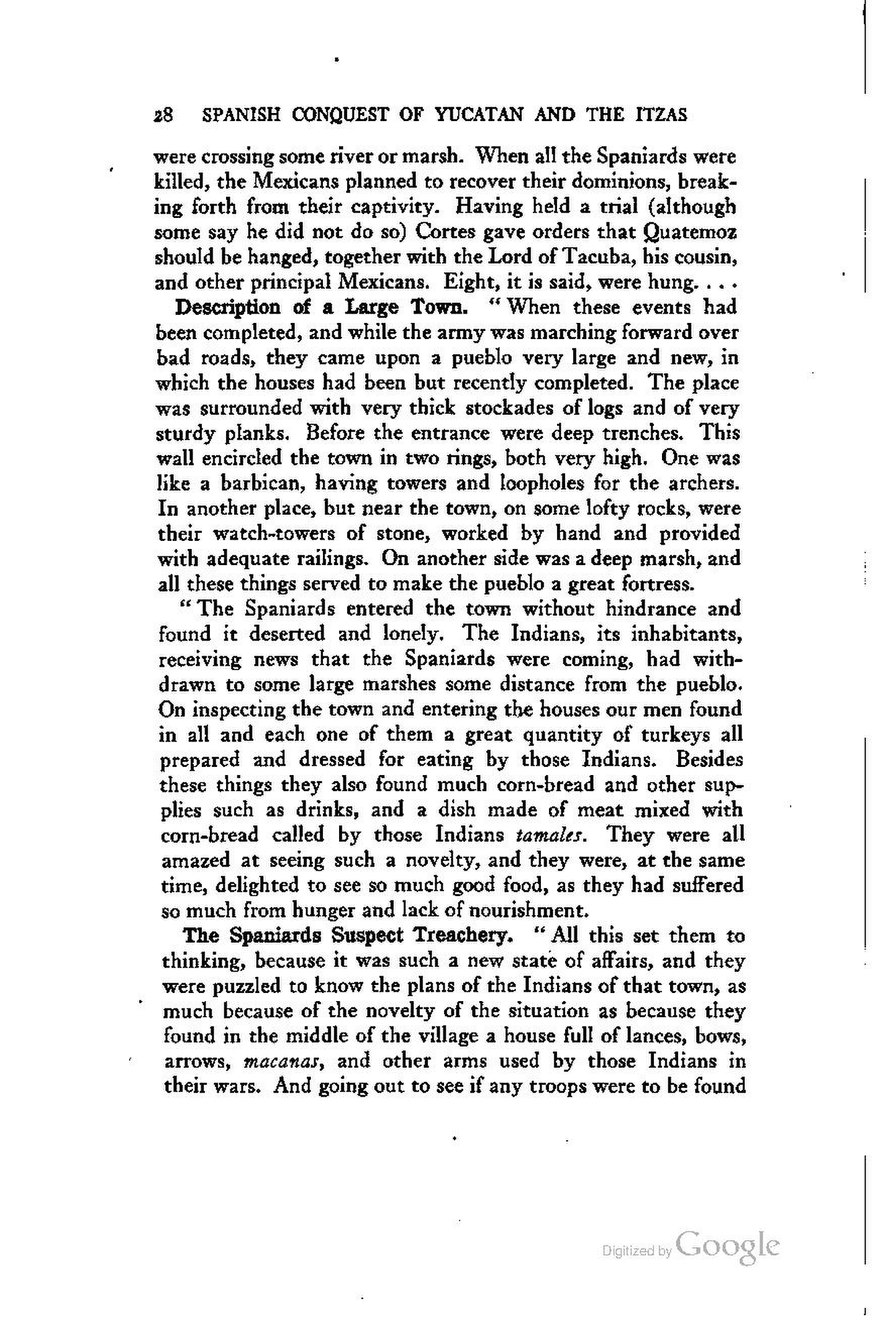were crossing some river or marsh. When all the Spaniards were killed, the Mexicans planned to recover their dominions, breaking forth from their captivity. Having held a trial (although some say he did not do so) Cortes gave orders that Quatemoz should be hanged, together with the Lord of Tacuba, his cousin, and other principal Mexicans. Eight, it is said, were hung....
Description of a Large Town. “When these events had been completed, and while the army was marching forward over bad roads, they came upon a pueblo very large and new, in which the houses had been but recently completed. The place was surrounded with very thick stockades of logs and of very sturdy planks. Before the entrance were deep trenches. This wall encircled the town in two rings, both very high. One was like a barbican, having towers and loopholes for the archers. In another place, but near the town, on some lofty rocks, were their watch-towers of stone, worked by hand and provided with adequate railings. On another side was a deep marsh, and all these things served to make the pueblo a great fortress.
“The Spaniards entered the town without hindrance and found it deserted and lonely. The Indians, its inhabitants, receiving news that the Spaniards were coming, had withdrawn to some large marshes some distance from the pueblo. On inspecting the town and entering the houses our men found in all and each one of them a great quantity of turkeys all prepared and dressed for eating by those Indians. Besides these things they also found much corn-bread and other supplies such as drinks, and a dish made of meat mixed with corn-bread called by those Indians tamales. They were all amazed at seeing such a novelty, and they were, at the same time, delighted to see so much good food, as they had suffered so much from hunger and lack of nourishment.
The Spaniards Suspect Treachery. “All this set them to thinking, because it was such a new state of affairs, and they were puzzled to know the plans of the Indians of that town, as much because of the novelty of the situation as because they found in the middle of the village a house full of lances, bows, arrows, macanas, and other arms used by those Indians in their wars. And going out to see if any troops were to be found
